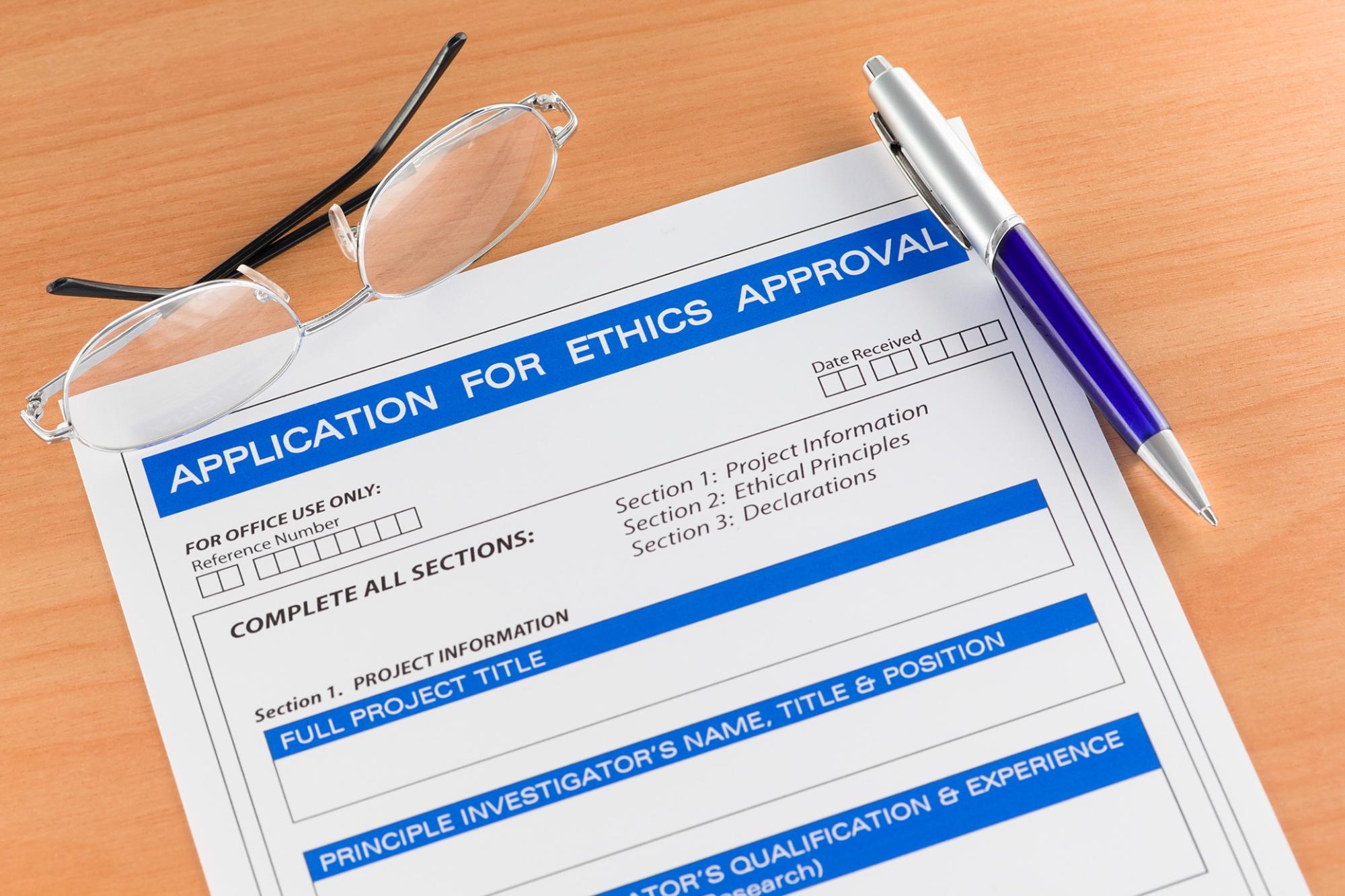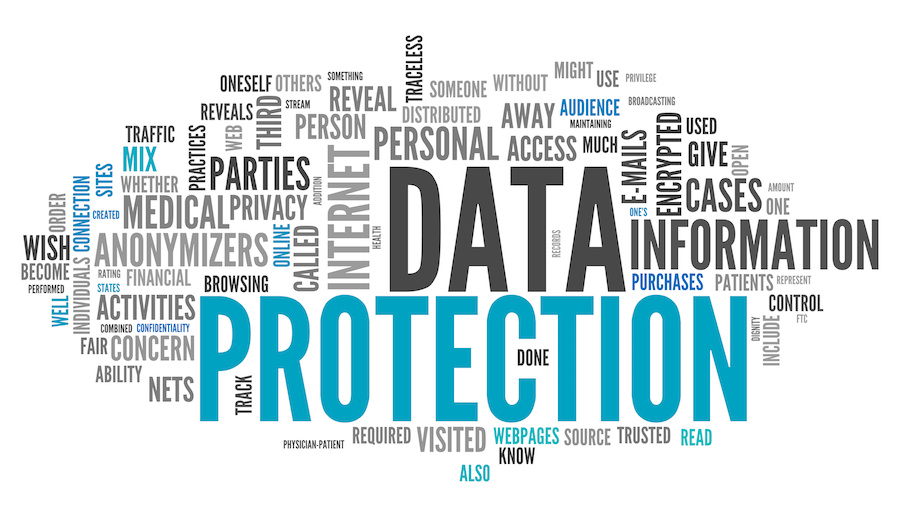Navigating the Ethics Application Process as a PhD Fellow
An introduction and guide for to any PhD or Masters students on the process of obtaining ethics approval for their research

 Conducting research for your PhD, is an exciting endeavor, but it involves various administrative tasks, including, if you are to work with human participants, obtaining ethical approval for your project. In this comprehensive guide, I'll share my personal experience of applying for an ethics application at the University of Amsterdam (UvA) and shed light on how the process works. The hope is that this will serve as a useful introduction and guide for any PhD or Masters students seeking to obtain ethics approval from their respective institutions!
Conducting research for your PhD, is an exciting endeavor, but it involves various administrative tasks, including, if you are to work with human participants, obtaining ethical approval for your project. In this comprehensive guide, I'll share my personal experience of applying for an ethics application at the University of Amsterdam (UvA) and shed light on how the process works. The hope is that this will serve as a useful introduction and guide for any PhD or Masters students seeking to obtain ethics approval from their respective institutions!
History of Ethics Approval
The history of ethics approval in research is closely intertwined with evolving ethical standards and legal frameworks. While the concept of ethical considerations in research has been long standing, the formalization of ethics committees and approval processes gained prominence in the mid-20th century following the end of World War II (Ochsner, 2006).
This development was driven by a growing awareness of the need to protect research participants, particularly in the wake of historical ethical breaches. In parallel, the 21st century brought about significant changes with the advent of the General Data Protection Regulation (GDPR) in the European Union. GDPR, enacted in 2018, reinforced and modernized data protection and privacy standards, impacting how researchers handle personal data. Ethical approval now extends to ensuring compliance with GDPR requirements when dealing with sensitive personal information, emphasizing the dual importance of both ethical and legal considerations in contemporary research practices. Researchers must not only adhere to ethical principles but also navigate the legal intricacies of data protection, highlighting the dynamic and ever-evolving landscape of research ethics in the digital age.
Importance of Ethics Approval 
Understanding the significance of ethical approval is paramount, not only for researchers but for the integrity of research itself. Regardless of the field, ethical approval serves as a critical checkpoint to ensure that research respects the rights, privacy, and well-being of participants. In the social and political sciences, where research often involves interactions with human participants and the collection of data that can directly impact individuals and communities, ethical approval is indispensable.
The Significance of Ethics Approval in the Social and Political Sciences
In the social and political sciences, research often involves studying human behavior, beliefs, and institutions. This can include sensitive topics such as political ideologies, social inequalities, or human rights violations. Ethical approval serves as a safeguard against potential harm to participants and helps maintain the integrity of the research process. It ensures that researchers adhere to ethical principles such as informed consent, confidentiality, and protection of vulnerable groups. Furthermore, ethical research practices contribute to the credibility and trustworthiness of findings in these fields, which often inform policy decisions and societal discourse.
My Journey

Step 1: Preparation
My journey began with thorough preparation. I carefully reviewed my research proposal and identified potential ethical concerns.
Some key questions I considered included:
- How would I obtain informed consent from participants?
- What measures would ensure the confidentiality of collected data?
- Were there any vulnerable groups involved, and how could I protect their interests?
Step 2: Data Management Course
Here's where my decision to take a data management course offered by the ARTES research institute played a crucial role. Data management isn't just about organizing information; it's an integral aspect of ethical research.
The course equipped me with essential knowledge about data storage, security, and documentation. Applying this knowledge proved invaluable during my ethics application process. I could demonstrate my commitment to ethical standards by outlining sound data management practices in my proposal.
Step 3: Submitting the Application
With my research proposal prepared and my data management practices aligned with ethical standards, I proceeded to submit my ethics application. UvA provides a user-friendly online platform for this purpose, simplifying the submission process for all researchers, whether students or faculty members.
My application included:
- A comprehensive description of my research project.
- My plan for obtaining informed consent from participants.
- Strategies to maintain data confidentiality.
- Consideration of potential risks or harm to participants.
- Any additional documents or information requested by the ethics committee.
Step 4: Review Process
After submitting my application, it entered the review process. UvA's ethics committee comprises experts from diverse fields, including both academic and external members. They diligently evaluated my proposal to ensure its alignment with ethical standards. In some cases, they requested clarifications or modifications.
Step 5: Approval
Finally, my ethics application received approval, and I was ready to commence my research. It's important to note that the approval process can be time-consuming, so planning ahead is essential to avoid project delays.
5. Resources for EU GDPR Standards
 Navigating the ethics application process at the University of Amsterdam is an integral part of conducting responsible research, particularly in the social and political sciences. My experience demonstrates that with thorough preparation and a solid foundation in data management, you can ensure your research is academically rigorous and ethically sound. By addressing ethical considerations and adhering to established procedures, you contribute to the credibility of academic research and uphold the principles of responsible scholarship.
Navigating the ethics application process at the University of Amsterdam is an integral part of conducting responsible research, particularly in the social and political sciences. My experience demonstrates that with thorough preparation and a solid foundation in data management, you can ensure your research is academically rigorous and ethically sound. By addressing ethical considerations and adhering to established procedures, you contribute to the credibility of academic research and uphold the principles of responsible scholarship.
Furthermore, in the social and political sciences, research often involves interactions with human participants and the collection of data that can directly impact individuals and communities. Ethical approval serves as a mechanism to uphold the principles of respect, fairness, and accountability in research. It ensures that researchers consider the potential consequences of their work on the well-being and rights of the participants involved. By obtaining ethical approval, researchers commit to ethical conduct, which extends beyond the research phase and into the dissemination of findings. It reinforces the responsibility to accurately and respectfully represent the voices and experiences of those studied. Ultimately, ethics approval in the social and political sciences contributes to the broader goal of producing research that is not only academically rigorous but also socially responsible and beneficial to society as a whole.
In addition to the ethical considerations, it's worth noting that when conducting research in Europe, particularly under the jurisdiction of the European Union (EU), researchers must adhere to the General Data Protection Regulation (GDPR) standards. GDPR is a comprehensive data protection framework that governs the collection, processing, and storage of personal data within the EU and for EU citizens worldwide. Researchers handling any form of personal data, such as participant information, must ensure strict compliance with GDPR. This includes obtaining clear and informed consent, securely managing and storing data, and respecting individuals' rights to access and control their data. GDPR not only protects individuals' privacy rights but also enforces severe penalties for non-compliance, making it a critical aspect of research ethics in the EU. Therefore, when applying for ethics approval at the University of Amsterdam or any EU institution, familiarity with GDPR standards is essential to ensure both ethical and legal research practices
For up-to-date information and resources on EU GDPR regulations, the official website of the European Commission is an invaluable resource.
This website provides comprehensive information on the GDPR, including the full text of the regulation, guidance documents, FAQs, and updates on data protection-related developments within the European Union. It is a reliable source for researchers, businesses, and individuals seeking to understand and comply with GDPR standards. Additionally, various national data protection authorities within EU member states also offer guidance and resources related to GDPR compliance on their respective websites, which can be useful for more specific inquiries or regional nuances. One notable advantage of pursuing a joint PhD between two European Union (EU) institutions is the streamlined ethics approval process. Given that both institutions operate under the same EU regulations, ethics approval obtained from one institution is typically recognized and accepted by the other.
An ethical conundrum?
 While the emphasis on protecting research participants is crucial in the ethics approval process, it's equally important to question why the process often overlooks the potential dangers and risks faced by the researchers themselves. Researchers engaged in sensitive and contentious topics, such as those in the social and political sciences, can face various challenges and risks, including personal safety, emotional distress, or professional backlash. Little is known about the responsibility of the university to help protect researchers from these potential hazards. Ethical approval procedures should also consider the well-being and safety of the individuals conducting the research. Recognizing and addressing the potential risks faced by researchers is vital for promoting responsible scholarship and ensuring that the research process is not only ethically sound but also safe for those carrying it out. Universities should take a more active role in providing support and guidance to researchers dealing with potentially volatile subjects, ensuring that they are not left to navigate these challenges on their own.
While the emphasis on protecting research participants is crucial in the ethics approval process, it's equally important to question why the process often overlooks the potential dangers and risks faced by the researchers themselves. Researchers engaged in sensitive and contentious topics, such as those in the social and political sciences, can face various challenges and risks, including personal safety, emotional distress, or professional backlash. Little is known about the responsibility of the university to help protect researchers from these potential hazards. Ethical approval procedures should also consider the well-being and safety of the individuals conducting the research. Recognizing and addressing the potential risks faced by researchers is vital for promoting responsible scholarship and ensuring that the research process is not only ethically sound but also safe for those carrying it out. Universities should take a more active role in providing support and guidance to researchers dealing with potentially volatile subjects, ensuring that they are not left to navigate these challenges on their own.
Breault J. L. (2006). Protecting human research subjects: the past defines the future. Ochsner journal, 6(1), 15–20. https://doi.org/10.1043/1524-5012(2006)006[0015:PHRSTP]2.0.CO;2
